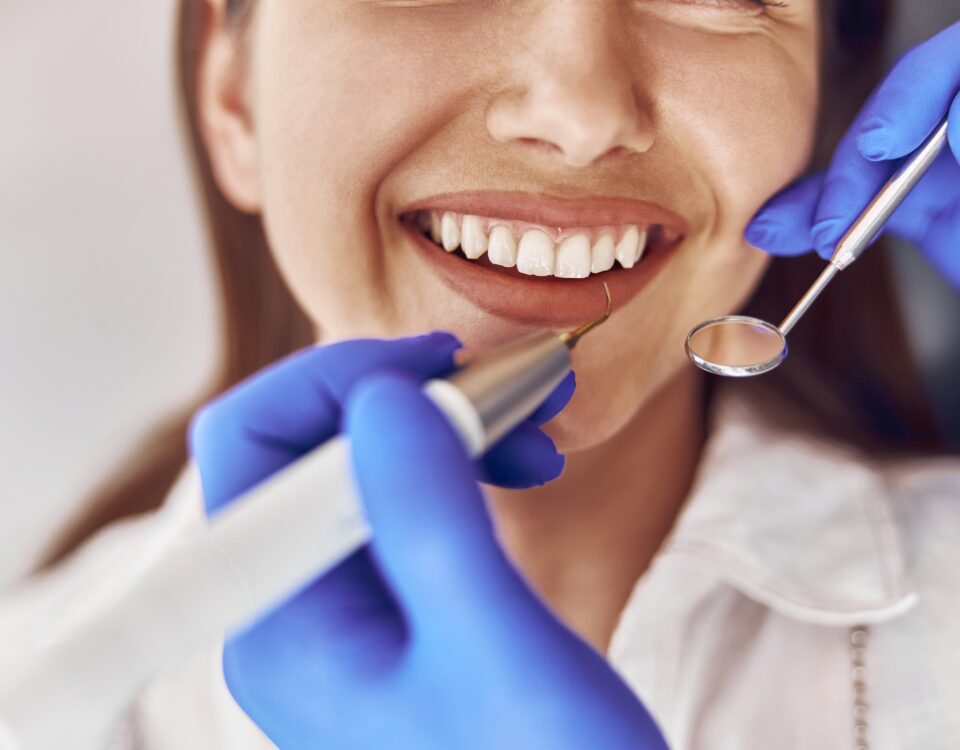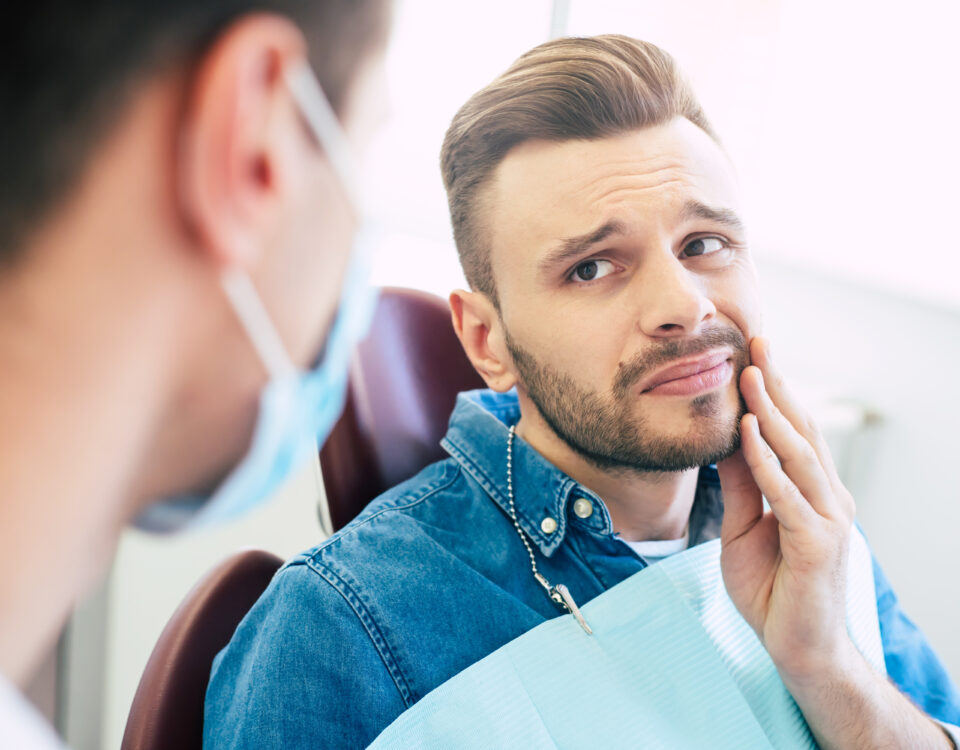Is Tooth Decay a Contagious Condition?

What to Do When You Crack a Tooth: Expert Advice
June 22, 2023
The Miracle of Dental Crowns and Bridges: What They Can Fix
July 7, 2023Is Tooth Decay a Contagious Condition?

Have you ever wondered: are cavities contagious? As it turns out, the answer is a little complex. The condition that causes cavities, also known as tooth decay, is not a contagious one. However, certain types of bacteria can be exchanged between people that can cause tooth decay. So, while tooth decay may not be a contagious condition per se, there are ways that it may spread from person to person.
What is Tooth Decay?
Tooth decay is caused by bacteria that live in the mouth. These bacteria produce acids that eat away at tooth enamel, leading to cavities.
Our mouths are full of bacteria. Some bacteria are helpful. But some can be harmful, including the ones that play a role in tooth decay. These bacteria combine with food to form a soft, sticky film called plaque. The bacteria in plaque use the sugar and starch in what you eat and drink to make acids. The acids begin to eat away at the minerals on your enamel. Over time, the plaque can harden into tartar. Besides damaging your teeth, plaque and tartar can also irritate your gums and cause gum disease.
Symptoms of Cavities
The most obvious symptom of cavities is a visible hole in the tooth, but there are other signs as well, such as:
- Toothache, spontaneous pain or pain that occurs without any apparent cause
- Tooth sensitivity
- Mild to sharp pain when eating or drinking something sweet, hot or cold
- Visible holes or pits in your teeth
- Brown, black or white staining on any surface of a tooth
- Pain when you bite down
Is Tooth Decay a Contagious Condition?
The bacteria that cause tooth decay, known as Streptococcus mutans, are not contagious in nature. That means that contact with another person who has cavities will not cause you to get them. However, these same bacteria can transfer from one person to another without direct contact. For example, if a family member or friend shares their eating utensils with someone who has cavities, the bacteria can transfer that way. Additionally, if saliva is exchanged, such as through kissing or sharing straws, it is possible for the bacteria to spread in this manner as well.
Certain Behaviors
While tooth decay itself may not be contagious, certain behaviors associated with it can make it more likely to pass from one person to another. Poor oral hygiene habits, such as not brushing teeth regularly or not flossing, can make it more likely for Streptococcus mutans to spread. Additionally, if someone is already living with cavities and experiences dry mouth due to certain medications or health conditions, it can also increase the likelihood of passing on these bacteria.
Overall, tooth decay is not a contagious condition. However, certain behaviors and habits can increase the likelihood of spreading bacteria that causes tooth decay from person to person. It is important to practice good oral hygiene habits, such as brushing twice a day and flossing regularly, in order to prevent cavities and reduce the risk of passing on these bacteria.
How Cavities are Treated
If a cavity is found, it can be filled by a dentist. The filling will help protect the tooth from further damage and restore its function. Depending on the severity of the cavity, a dental crown may also be necessary to fully protect and repair the affected tooth.
Cavity Prevention
The best way to prevent cavities is to practice good oral hygiene habits. This includes brushing teeth twice a day, flossing daily, using an antibacterial mouthwash, and avoiding sugary drinks like soda or juice. Additionally, limiting the sharing of eating utensils or straws with others can help reduce the risk of spreading bacteria that causes tooth decay.
By understanding the causes of tooth decay and proper cavity prevention methods, you can help protect your teeth from this common condition. Taking steps to maintain good oral hygiene will not only prevent cavities but also improve overall health. If cavities are present, it is important to seek treatment as soon as possible in order to restore the affected tooth and prevent further damage.
Make an Appointment with Mountain Aire Dentistry
By following a few simple tips, you can help protect your teeth from this common condition and ensure a healthy smile for years to come. If you have any concerns about cavities or are experiencing pain in your teeth, it is important to make an appointment with a dentist. At Mountain Aire Dentistry, we provide comprehensive dental care and can help diagnose and treat any issues that you may be facing. Contact us today to schedule an appointment and learn more about how we can help protect your teeth from tooth decay.
When you visit our Broomfield dental office, your smile is our top priority. Our Dentists invite you to experience the difference a warm and caring team can provide for you and your family. Enjoy a unique and comfortable dental experience designed to bring a healthier and happier smile back into your life. We invite you to call or visit our Broomfield dental office and discover the exceptional difference we offer to those we serve.













